Obama-Xi reach ‘firm understanding’ on N. Korea’s nuclear issues
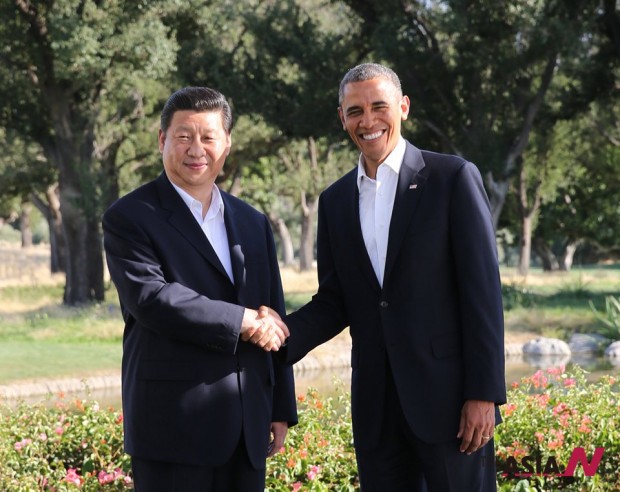
Chinese President Xi Jinping (L) poses for a photo with U.S. President Barack Obama before their meeting at the Annenberg Retreat, California, the United States, June 7, 2013. (Photo : Xinhua/Xie Huanchi)
President Barack Obama and Chinese President Xi Jinping’s 50-minute stroll through an estate in the California desert could mark a notable moment in the relationship between the heads of the world’s two largest economies. At the very least, it was a rare opportunity Saturday for the presidents to dispense with their advisers for one-on-one talks.
Tom Donilon, Obama’s national security adviser who helped orchestrate the two-day summit, said the walk was important “to establish and deepen their personal relationship” and address “the range of issues that we have to address.”
It’s a big list that includes cyberspying and intellectual property theft and North Korea’s nuclear provocations, as well as economic competition and climate change. There were no policy breakthroughs, but both countries appeared to leave pleased that the issues were addressed candidly and the groundwork was laid for future talks.
The leaders “did not shy away from differences,” said Yang Jiechi, Xi’s senior foreign policy adviser, adding that Obama and Xi “blazed a new trail” in the relationship between their countries.
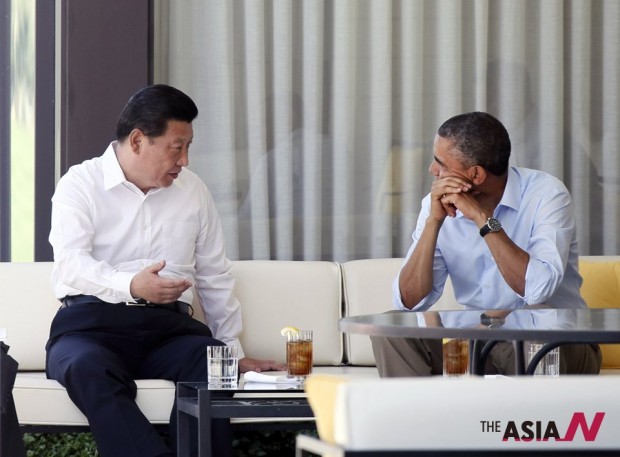
Chinese President Xi Jinping (L) and U.S. President Barack Obama have a talk on a bench while taking a walk before heading into their second meeting, at the Annenberg Retreat, California, the United States, June 8, 2013. Chinese President Xi Jinping and U.S. President Barack Obama held the second meeting here on Saturday to exchange views on economic ties. (Photo : Xinhua/Lan Hongguang)
Obama and Xi held more than eight hours of talks during the two-day summit, which closed Saturday afternoon. They found common ground in their frustrations over North Korea’s provocations and on climate change, agreeing to work together to reduce the use of hydrofluorocarbons, a potent greenhouse gas used in refrigerators, air conditioners and industrial applications.
But there was no accord over cybersecurity, which U.S. officials see as perhaps the most pressing issue facing the two nations. Obama confronted Xi with specific evidence of intellectual property theft the U.S. says is emanating from China. Xi said China was also a victim of cyberattacks but did not publicly acknowledge his country’s alleged activities.
For Obama, the meetings with Xi were an opportunity to test the kind of personal diplomacy his advisers say he craves. The president and his team have long grumbled privately about the constraints of large, highly scripted international summits, with schedules packed with plenary sessions and group photos. Policy outcomes at those meetings are often predetermined during earlier rounds of talks with lower level officials.
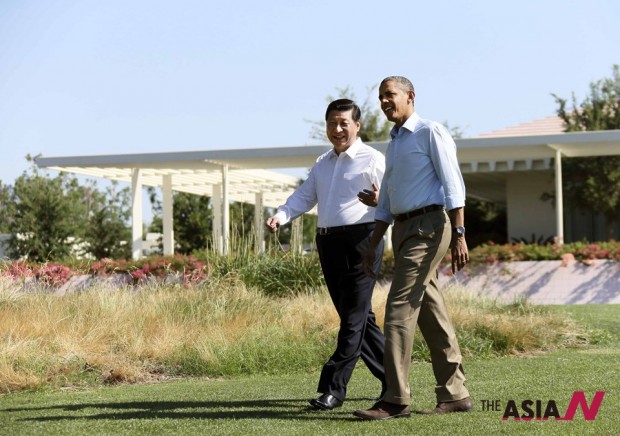
Chinese President Xi Jinping (L) and U.S. President Barack Obama take a walk before heading into their second meeting, at the Annenberg Retreat, California, the United States, June 8, 2013. (Photo : Xinhua/Lan Hongguang)
“You’re not really having an actual exchange,” Ben Rhodes, Obama’s deputy national security adviser, said of the larger summits. “You can only really work through a small number of agenda items, and you don’t get to really dig in with another leader on a bigger range of subjects.”
Obama and Xi, who took office in March, had been scheduled to hold their first official meeting on the sidelines of one of those summits – a September economic meeting in St. Petersburg, Russia.
But U.S. officials were eager to move up talks with Xi. Many Obama advisers see the 59-year-old as a potentially new brand of Chinese leader, with closer ties to the U.S. than many of his predecessors and an apparent ease during public appearances that eluded the man he replaced, Hu Jintao.
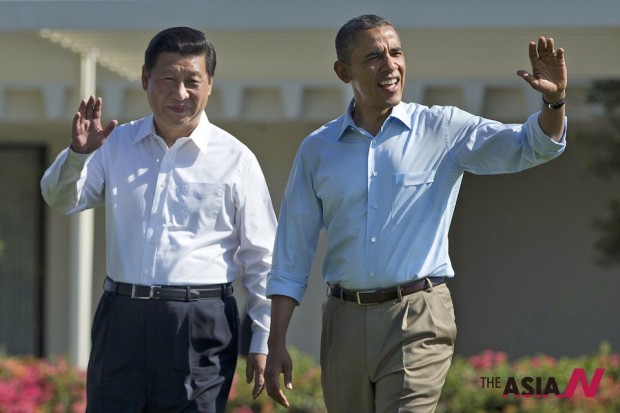
President Barack Obama and Chinese President Xi Jinping, left, walk at the Annenberg Retreat of the Sunnylands estate Saturday, June 8, 2013, in Rancho Mirage, Calif. While saying it is critical that the U.S. and China reach a "firm understanding" on cyber issues, Obama told reporters his meetings with Xi have been "terrific." (Photo : AP Photo/Evan Vucci)
U.S. officials approached the Chinese earlier this year to see if Xi would be willing to dispense with the formal pageantry of a state visit to the White House and instead hold more free-flowing talks. Former American presidents dating back to Dwight Eisenhower have decamped to the California desert retreat for both policy meetings and vacations.
“There was really quite quick acceptance by President Xi,” Donilon said.
Still, Obama and Xi’s “shirt sleeves” summit was hardly unscripted. A pair of bilateral meetings looked and felt similar to most diplomatic gatherings, with Obama and Xi seated at the center of long tables, each flanked by several aides. And Saturday’s morning walk was originally scheduled as a photo opportunity for the U.S. and Chinese press corps, though White House aides said the leaders decided to keep the conversation going long after they passed by the media.
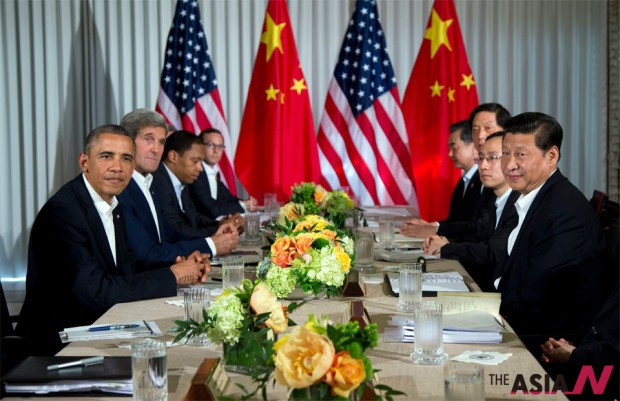
U.S. President Barack Obama and Chinese President Xi Jinping holds the second meeting here on Saturday, June 8 to exchange views on various issues including cybersecurity and North Korea's nuclear provocations. (AP Photo)
Like Obama, Xi appears receptive to the more low-key approach to diplomatic negotiations. He offered to host Obama soon at a similarly informal meeting in China, something White House officials say they’ll work on with the Chinese. <AP/NEWSis>

























































